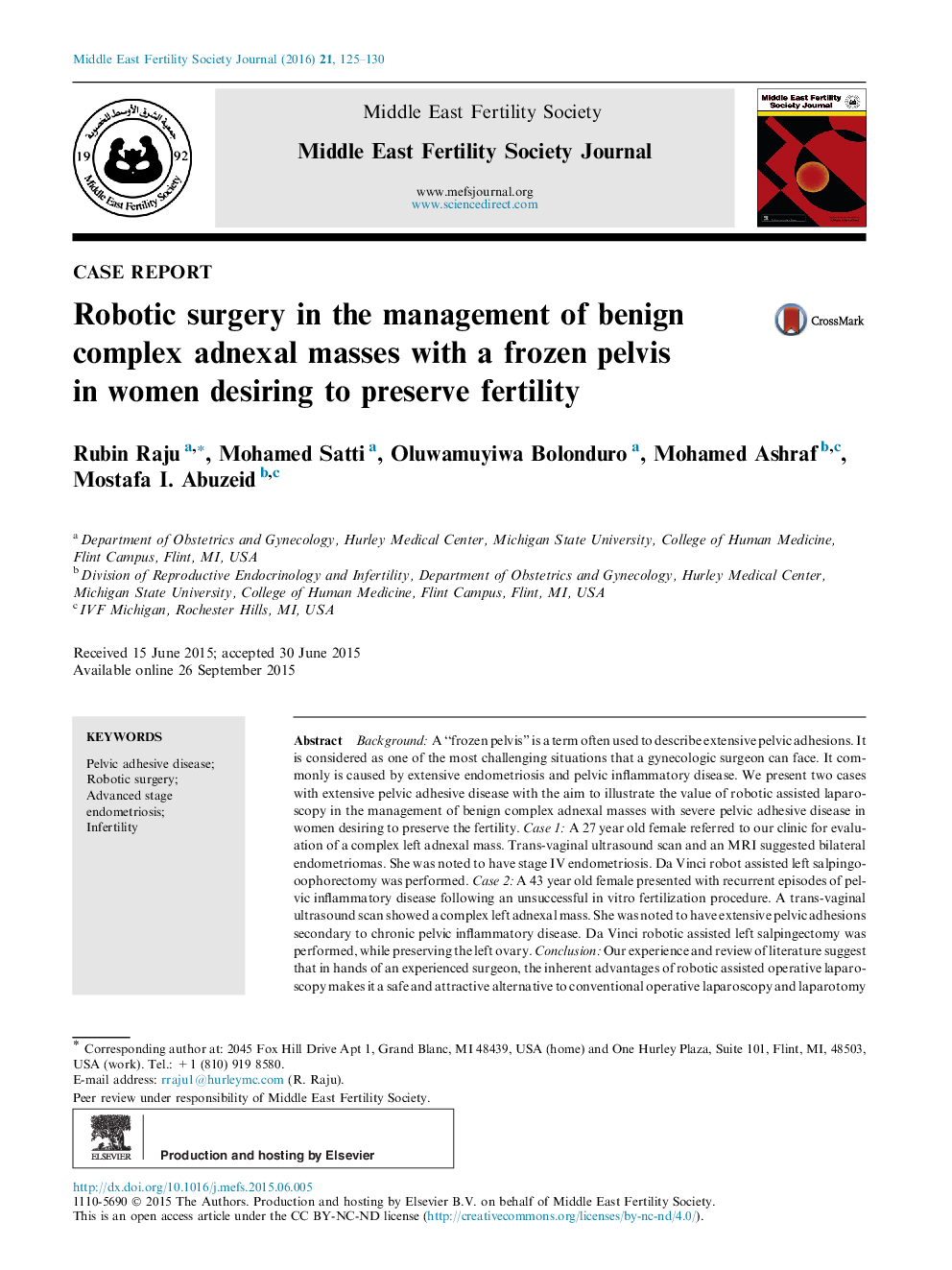| Article ID | Journal | Published Year | Pages | File Type |
|---|---|---|---|---|
| 3966059 | Middle East Fertility Society Journal | 2016 | 6 Pages |
Background: A “frozen pelvis” is a term often used to describe extensive pelvic adhesions. It is considered as one of the most challenging situations that a gynecologic surgeon can face. It commonly is caused by extensive endometriosis and pelvic inflammatory disease. We present two cases with extensive pelvic adhesive disease with the aim to illustrate the value of robotic assisted laparoscopy in the management of benign complex adnexal masses with severe pelvic adhesive disease in women desiring to preserve the fertility. Case 1: A 27 year old female referred to our clinic for evaluation of a complex left adnexal mass. Trans-vaginal ultrasound scan and an MRI suggested bilateral endometriomas. She was noted to have stage IV endometriosis. Da Vinci robot assisted left salpingo-oophorectomy was performed. Case 2: A 43 year old female presented with recurrent episodes of pelvic inflammatory disease following an unsuccessful in vitro fertilization procedure. A trans-vaginal ultrasound scan showed a complex left adnexal mass. She was noted to have extensive pelvic adhesions secondary to chronic pelvic inflammatory disease. Da Vinci robotic assisted left salpingectomy was performed, while preserving the left ovary. Conclusion: Our experience and review of literature suggest that in hands of an experienced surgeon, the inherent advantages of robotic assisted operative laparoscopy makes it a safe and attractive alternative to conventional operative laparoscopy and laparotomy for managing benign complex adnexal masses with concomitant severe pelvic adhesive disease in women desiring to preserve their fertility.
